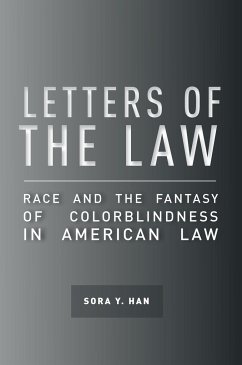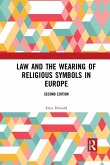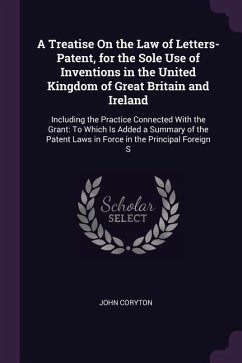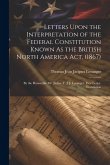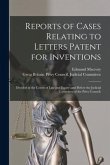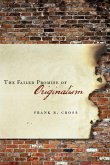- Broschiertes Buch
- Merkliste
- Auf die Merkliste
- Bewerten Bewerten
- Teilen
- Produkt teilen
- Produkterinnerung
- Produkterinnerung
Sora Y. Han is Assistant Professor of Criminology, Law and Society at the University of California, Irvine.
Andere Kunden interessierten sich auch für
![Law and the Wearing of Religious Symbols in Europe Law and the Wearing of Religious Symbols in Europe]() Erica HowardLaw and the Wearing of Religious Symbols in Europe54,99 €
Erica HowardLaw and the Wearing of Religious Symbols in Europe54,99 €![The Law Relating to the Duties On Probates and Letters of Administration in England, and Inventories of Personal Or Moveable Estates in Scotland, and On Legacies and Successions to Personal Or Moveable Estates in Great Britain The Law Relating to the Duties On Probates and Letters of Administration in England, and Inventories of Personal Or Moveable Estates in Scotland, and On Legacies and Successions to Personal Or Moveable Estates in Great Britain]() Thomas GwynneThe Law Relating to the Duties On Probates and Letters of Administration in England, and Inventories of Personal Or Moveable Estates in Scotland, and On Legacies and Successions to Personal Or Moveable Estates in Great Britain25,99 €
Thomas GwynneThe Law Relating to the Duties On Probates and Letters of Administration in England, and Inventories of Personal Or Moveable Estates in Scotland, and On Legacies and Successions to Personal Or Moveable Estates in Great Britain25,99 €![A Treatise On the Law of Letters-Patent, for the Sole Use of Inventions in the United Kingdom of Great Britain and Ireland A Treatise On the Law of Letters-Patent, for the Sole Use of Inventions in the United Kingdom of Great Britain and Ireland]() John CorytonA Treatise On the Law of Letters-Patent, for the Sole Use of Inventions in the United Kingdom of Great Britain and Ireland34,99 €
John CorytonA Treatise On the Law of Letters-Patent, for the Sole Use of Inventions in the United Kingdom of Great Britain and Ireland34,99 €![Client Letters for the Family Lawyer: Saving Time, Managing Relationships, and Practicing Preventive Law Client Letters for the Family Lawyer: Saving Time, Managing Relationships, and Practicing Preventive Law]() Mark E. SullivanClient Letters for the Family Lawyer: Saving Time, Managing Relationships, and Practicing Preventive Law75,99 €
Mark E. SullivanClient Letters for the Family Lawyer: Saving Time, Managing Relationships, and Practicing Preventive Law75,99 €![Letters Upon the Interpretation of the Federal Constitution Known As the British North America Act, (1867): By the Honorable Mr. Justice T. J. J. Lora Letters Upon the Interpretation of the Federal Constitution Known As the British North America Act, (1867): By the Honorable Mr. Justice T. J. J. Lora]() Thomas Jean Jacques LorangerLetters Upon the Interpretation of the Federal Constitution Known As the British North America Act, (1867): By the Honorable Mr. Justice T. J. J. Lora18,99 €
Thomas Jean Jacques LorangerLetters Upon the Interpretation of the Federal Constitution Known As the British North America Act, (1867): By the Honorable Mr. Justice T. J. J. Lora18,99 €![Reports of Cases Relating to Letters Patent for Inventions: Decided in the Courts of Law and Equity, and Before the Judicial Committee of the Privy Co Reports of Cases Relating to Letters Patent for Inventions: Decided in the Courts of Law and Equity, and Before the Judicial Committee of the Privy Co]() Edmund MacroryReports of Cases Relating to Letters Patent for Inventions: Decided in the Courts of Law and Equity, and Before the Judicial Committee of the Privy Co24,99 €
Edmund MacroryReports of Cases Relating to Letters Patent for Inventions: Decided in the Courts of Law and Equity, and Before the Judicial Committee of the Privy Co24,99 €![The Failed Promise of Originalism The Failed Promise of Originalism]() Frank CrossThe Failed Promise of Originalism29,99 €
Frank CrossThe Failed Promise of Originalism29,99 €-
-
-
Sora Y. Han is Assistant Professor of Criminology, Law and Society at the University of California, Irvine.
Hinweis: Dieser Artikel kann nur an eine deutsche Lieferadresse ausgeliefert werden.
Hinweis: Dieser Artikel kann nur an eine deutsche Lieferadresse ausgeliefert werden.
Produktdetails
- Produktdetails
- Verlag: Stanford University Press
- Seitenzahl: 184
- Erscheinungstermin: 2. Mai 2017
- Englisch
- Abmessung: 229mm x 152mm x 11mm
- Gewicht: 277g
- ISBN-13: 9781503602793
- ISBN-10: 1503602796
- Artikelnr.: 47295439
- Herstellerkennzeichnung
- Libri GmbH
- Europaallee 1
- 36244 Bad Hersfeld
- gpsr@libri.de
- Verlag: Stanford University Press
- Seitenzahl: 184
- Erscheinungstermin: 2. Mai 2017
- Englisch
- Abmessung: 229mm x 152mm x 11mm
- Gewicht: 277g
- ISBN-13: 9781503602793
- ISBN-10: 1503602796
- Artikelnr.: 47295439
- Herstellerkennzeichnung
- Libri GmbH
- Europaallee 1
- 36244 Bad Hersfeld
- gpsr@libri.de
Sora Y. Han is Assistant Professor of Criminology, Law and Society at the University of California, Irvine.
Contents and Abstracts
Introduction: Letters of the Law
chapter abstract
Drawing on concepts from critical race theory, feminist psychoanalysis and
deconstruction, the Introduction exposits and explains the importance of
developing a protocol of reading the law's language of race anew. "Letters
of the Law" is the conceptual term designating this protocol of reading
beyond the law's functional effects in or formal divisions from social
reality, and toward the law's language of race on its own terms. The
fantasy of colorblindness serves as the entry point into the law's
language, and is further exposited through case law and critical
scholarship on race and law. In the course of this exposition, the
Introduction also revises the central theoretical assumptions dominating
the study of race and law so that they can better reflect the centrality of
fantasy, unconscious desire, and rhetoric and writing to the practice and
politics of legal reform and black freedom struggle.
1Decompositional Rights
chapter abstract
This chapter revisits and restages U.S. Supreme Court cases on affirmative
action and the critique of "reverse discrimination" claims within a broader
set of jurisprudential and philosophical questions about black citizenship
and civil rights. Through a close reading of how the fantasy of
colorblindness is articulated in affirmative action law through a
multiracial national citizenship constituted against the historical limit
of slavery, this chapter argues that the figure of black citizenship
occupies a type of legal standing that promises only a constant
cancellation of civil rights. The black claim to civil rights not only
fails to achieve the status of an affirmative recognition of a citizen
subject, but also, its force as a right decomposes the philosophical
interdependence between citizenship and civil rights in the broader arena
of Equal Protection anti-discrimination jurisprudence.
2Colorblind Judgment
chapter abstract
This chapter examines and explores the formal structure of judicial review
in U.S. Supreme Court cases establishing the negative right prohibiting
state-enforced racial discrimination codified in the Fourteenth Amendment
Equal Protection clause. The fantasy of colorblindness in this doctrinal
context is an admission of the limits of the justificatory logic of
universal legal reason. Expanding on the abyssal form this limit takes,
this chapter argues that colorblind judgment, like classic topographical
conceptions of blindness in philosophic knowledge and aesthetic experience,
both guards against and contains the excesses of desire, specifically
"racial animus", in law. The chapter further explores how the materiality
of desire in legal judgment is also where a poetics of the plea takes the
form of an enduring echo in constitutional law.
3Racial Profiling
chapter abstract
This chapter examines the problem of legal interpretation in constitutional
protections of privacy, including the Fourteenth Amendment rights to equal
protection and due process, and the Fourth Amendment right requiring
probable cause during police searches and seizures of persons and property.
It argues that legal interpretations of these privacy rights and the
policing such rights delimit both rely on the fantasmatic pursuit of an
escaping image, the racial profile, to enforce the universal democratic
value of personal sovereignty. The fantasy of colorblindness appears in
this doctrinal context as a constitutional gaze that both creates and
obscures the racial profile in the imaginative domain of producing legal
meaning.
4The Purloined Prisoner
chapter abstract
This chapter examines letter writing as a formal, internally produced limit
to the erosion of prisoners' First Amendment right to expression. It
details how mass incarceration and its administration of various types of
civil death, runs up against an epistolary expressivity that is neither
extinguished nor sheltered by law, but is the material ground of desire at
work in reading the law both to the letter and for its letters. The chapter
argues that the fantasy of colorblindness in this context is a
territorializing practice of reducing these plural forms of the letter in
the law to a mass scene of writing. The chapter concludes with a reading of
the agency of a prisoner's letter in Cheryl Dunye's film, Stranger Inside.
Introduction: Letters of the Law
chapter abstract
Drawing on concepts from critical race theory, feminist psychoanalysis and
deconstruction, the Introduction exposits and explains the importance of
developing a protocol of reading the law's language of race anew. "Letters
of the Law" is the conceptual term designating this protocol of reading
beyond the law's functional effects in or formal divisions from social
reality, and toward the law's language of race on its own terms. The
fantasy of colorblindness serves as the entry point into the law's
language, and is further exposited through case law and critical
scholarship on race and law. In the course of this exposition, the
Introduction also revises the central theoretical assumptions dominating
the study of race and law so that they can better reflect the centrality of
fantasy, unconscious desire, and rhetoric and writing to the practice and
politics of legal reform and black freedom struggle.
1Decompositional Rights
chapter abstract
This chapter revisits and restages U.S. Supreme Court cases on affirmative
action and the critique of "reverse discrimination" claims within a broader
set of jurisprudential and philosophical questions about black citizenship
and civil rights. Through a close reading of how the fantasy of
colorblindness is articulated in affirmative action law through a
multiracial national citizenship constituted against the historical limit
of slavery, this chapter argues that the figure of black citizenship
occupies a type of legal standing that promises only a constant
cancellation of civil rights. The black claim to civil rights not only
fails to achieve the status of an affirmative recognition of a citizen
subject, but also, its force as a right decomposes the philosophical
interdependence between citizenship and civil rights in the broader arena
of Equal Protection anti-discrimination jurisprudence.
2Colorblind Judgment
chapter abstract
This chapter examines and explores the formal structure of judicial review
in U.S. Supreme Court cases establishing the negative right prohibiting
state-enforced racial discrimination codified in the Fourteenth Amendment
Equal Protection clause. The fantasy of colorblindness in this doctrinal
context is an admission of the limits of the justificatory logic of
universal legal reason. Expanding on the abyssal form this limit takes,
this chapter argues that colorblind judgment, like classic topographical
conceptions of blindness in philosophic knowledge and aesthetic experience,
both guards against and contains the excesses of desire, specifically
"racial animus", in law. The chapter further explores how the materiality
of desire in legal judgment is also where a poetics of the plea takes the
form of an enduring echo in constitutional law.
3Racial Profiling
chapter abstract
This chapter examines the problem of legal interpretation in constitutional
protections of privacy, including the Fourteenth Amendment rights to equal
protection and due process, and the Fourth Amendment right requiring
probable cause during police searches and seizures of persons and property.
It argues that legal interpretations of these privacy rights and the
policing such rights delimit both rely on the fantasmatic pursuit of an
escaping image, the racial profile, to enforce the universal democratic
value of personal sovereignty. The fantasy of colorblindness appears in
this doctrinal context as a constitutional gaze that both creates and
obscures the racial profile in the imaginative domain of producing legal
meaning.
4The Purloined Prisoner
chapter abstract
This chapter examines letter writing as a formal, internally produced limit
to the erosion of prisoners' First Amendment right to expression. It
details how mass incarceration and its administration of various types of
civil death, runs up against an epistolary expressivity that is neither
extinguished nor sheltered by law, but is the material ground of desire at
work in reading the law both to the letter and for its letters. The chapter
argues that the fantasy of colorblindness in this context is a
territorializing practice of reducing these plural forms of the letter in
the law to a mass scene of writing. The chapter concludes with a reading of
the agency of a prisoner's letter in Cheryl Dunye's film, Stranger Inside.
Contents and Abstracts
Introduction: Letters of the Law
chapter abstract
Drawing on concepts from critical race theory, feminist psychoanalysis and
deconstruction, the Introduction exposits and explains the importance of
developing a protocol of reading the law's language of race anew. "Letters
of the Law" is the conceptual term designating this protocol of reading
beyond the law's functional effects in or formal divisions from social
reality, and toward the law's language of race on its own terms. The
fantasy of colorblindness serves as the entry point into the law's
language, and is further exposited through case law and critical
scholarship on race and law. In the course of this exposition, the
Introduction also revises the central theoretical assumptions dominating
the study of race and law so that they can better reflect the centrality of
fantasy, unconscious desire, and rhetoric and writing to the practice and
politics of legal reform and black freedom struggle.
1Decompositional Rights
chapter abstract
This chapter revisits and restages U.S. Supreme Court cases on affirmative
action and the critique of "reverse discrimination" claims within a broader
set of jurisprudential and philosophical questions about black citizenship
and civil rights. Through a close reading of how the fantasy of
colorblindness is articulated in affirmative action law through a
multiracial national citizenship constituted against the historical limit
of slavery, this chapter argues that the figure of black citizenship
occupies a type of legal standing that promises only a constant
cancellation of civil rights. The black claim to civil rights not only
fails to achieve the status of an affirmative recognition of a citizen
subject, but also, its force as a right decomposes the philosophical
interdependence between citizenship and civil rights in the broader arena
of Equal Protection anti-discrimination jurisprudence.
2Colorblind Judgment
chapter abstract
This chapter examines and explores the formal structure of judicial review
in U.S. Supreme Court cases establishing the negative right prohibiting
state-enforced racial discrimination codified in the Fourteenth Amendment
Equal Protection clause. The fantasy of colorblindness in this doctrinal
context is an admission of the limits of the justificatory logic of
universal legal reason. Expanding on the abyssal form this limit takes,
this chapter argues that colorblind judgment, like classic topographical
conceptions of blindness in philosophic knowledge and aesthetic experience,
both guards against and contains the excesses of desire, specifically
"racial animus", in law. The chapter further explores how the materiality
of desire in legal judgment is also where a poetics of the plea takes the
form of an enduring echo in constitutional law.
3Racial Profiling
chapter abstract
This chapter examines the problem of legal interpretation in constitutional
protections of privacy, including the Fourteenth Amendment rights to equal
protection and due process, and the Fourth Amendment right requiring
probable cause during police searches and seizures of persons and property.
It argues that legal interpretations of these privacy rights and the
policing such rights delimit both rely on the fantasmatic pursuit of an
escaping image, the racial profile, to enforce the universal democratic
value of personal sovereignty. The fantasy of colorblindness appears in
this doctrinal context as a constitutional gaze that both creates and
obscures the racial profile in the imaginative domain of producing legal
meaning.
4The Purloined Prisoner
chapter abstract
This chapter examines letter writing as a formal, internally produced limit
to the erosion of prisoners' First Amendment right to expression. It
details how mass incarceration and its administration of various types of
civil death, runs up against an epistolary expressivity that is neither
extinguished nor sheltered by law, but is the material ground of desire at
work in reading the law both to the letter and for its letters. The chapter
argues that the fantasy of colorblindness in this context is a
territorializing practice of reducing these plural forms of the letter in
the law to a mass scene of writing. The chapter concludes with a reading of
the agency of a prisoner's letter in Cheryl Dunye's film, Stranger Inside.
Introduction: Letters of the Law
chapter abstract
Drawing on concepts from critical race theory, feminist psychoanalysis and
deconstruction, the Introduction exposits and explains the importance of
developing a protocol of reading the law's language of race anew. "Letters
of the Law" is the conceptual term designating this protocol of reading
beyond the law's functional effects in or formal divisions from social
reality, and toward the law's language of race on its own terms. The
fantasy of colorblindness serves as the entry point into the law's
language, and is further exposited through case law and critical
scholarship on race and law. In the course of this exposition, the
Introduction also revises the central theoretical assumptions dominating
the study of race and law so that they can better reflect the centrality of
fantasy, unconscious desire, and rhetoric and writing to the practice and
politics of legal reform and black freedom struggle.
1Decompositional Rights
chapter abstract
This chapter revisits and restages U.S. Supreme Court cases on affirmative
action and the critique of "reverse discrimination" claims within a broader
set of jurisprudential and philosophical questions about black citizenship
and civil rights. Through a close reading of how the fantasy of
colorblindness is articulated in affirmative action law through a
multiracial national citizenship constituted against the historical limit
of slavery, this chapter argues that the figure of black citizenship
occupies a type of legal standing that promises only a constant
cancellation of civil rights. The black claim to civil rights not only
fails to achieve the status of an affirmative recognition of a citizen
subject, but also, its force as a right decomposes the philosophical
interdependence between citizenship and civil rights in the broader arena
of Equal Protection anti-discrimination jurisprudence.
2Colorblind Judgment
chapter abstract
This chapter examines and explores the formal structure of judicial review
in U.S. Supreme Court cases establishing the negative right prohibiting
state-enforced racial discrimination codified in the Fourteenth Amendment
Equal Protection clause. The fantasy of colorblindness in this doctrinal
context is an admission of the limits of the justificatory logic of
universal legal reason. Expanding on the abyssal form this limit takes,
this chapter argues that colorblind judgment, like classic topographical
conceptions of blindness in philosophic knowledge and aesthetic experience,
both guards against and contains the excesses of desire, specifically
"racial animus", in law. The chapter further explores how the materiality
of desire in legal judgment is also where a poetics of the plea takes the
form of an enduring echo in constitutional law.
3Racial Profiling
chapter abstract
This chapter examines the problem of legal interpretation in constitutional
protections of privacy, including the Fourteenth Amendment rights to equal
protection and due process, and the Fourth Amendment right requiring
probable cause during police searches and seizures of persons and property.
It argues that legal interpretations of these privacy rights and the
policing such rights delimit both rely on the fantasmatic pursuit of an
escaping image, the racial profile, to enforce the universal democratic
value of personal sovereignty. The fantasy of colorblindness appears in
this doctrinal context as a constitutional gaze that both creates and
obscures the racial profile in the imaginative domain of producing legal
meaning.
4The Purloined Prisoner
chapter abstract
This chapter examines letter writing as a formal, internally produced limit
to the erosion of prisoners' First Amendment right to expression. It
details how mass incarceration and its administration of various types of
civil death, runs up against an epistolary expressivity that is neither
extinguished nor sheltered by law, but is the material ground of desire at
work in reading the law both to the letter and for its letters. The chapter
argues that the fantasy of colorblindness in this context is a
territorializing practice of reducing these plural forms of the letter in
the law to a mass scene of writing. The chapter concludes with a reading of
the agency of a prisoner's letter in Cheryl Dunye's film, Stranger Inside.

